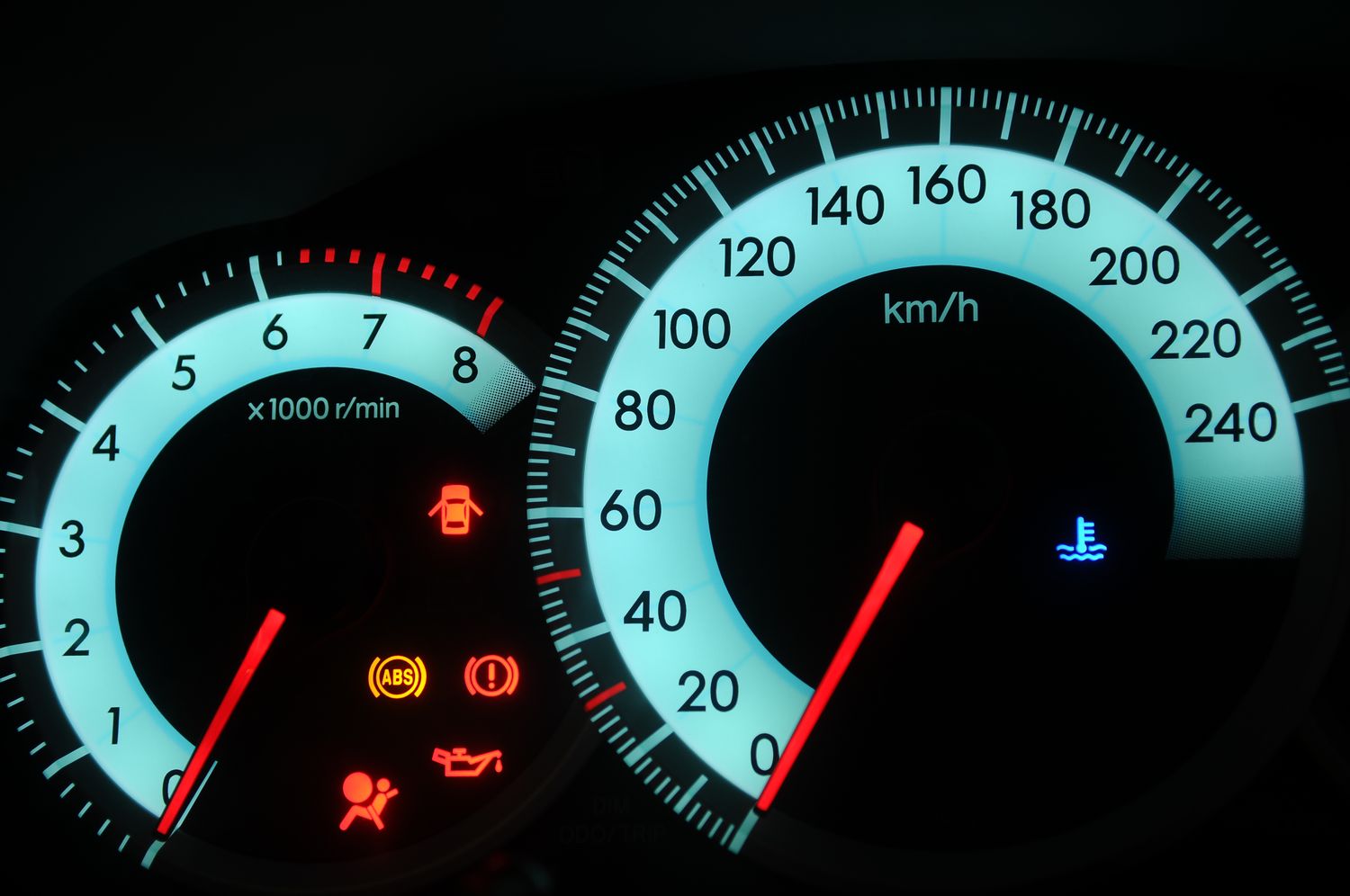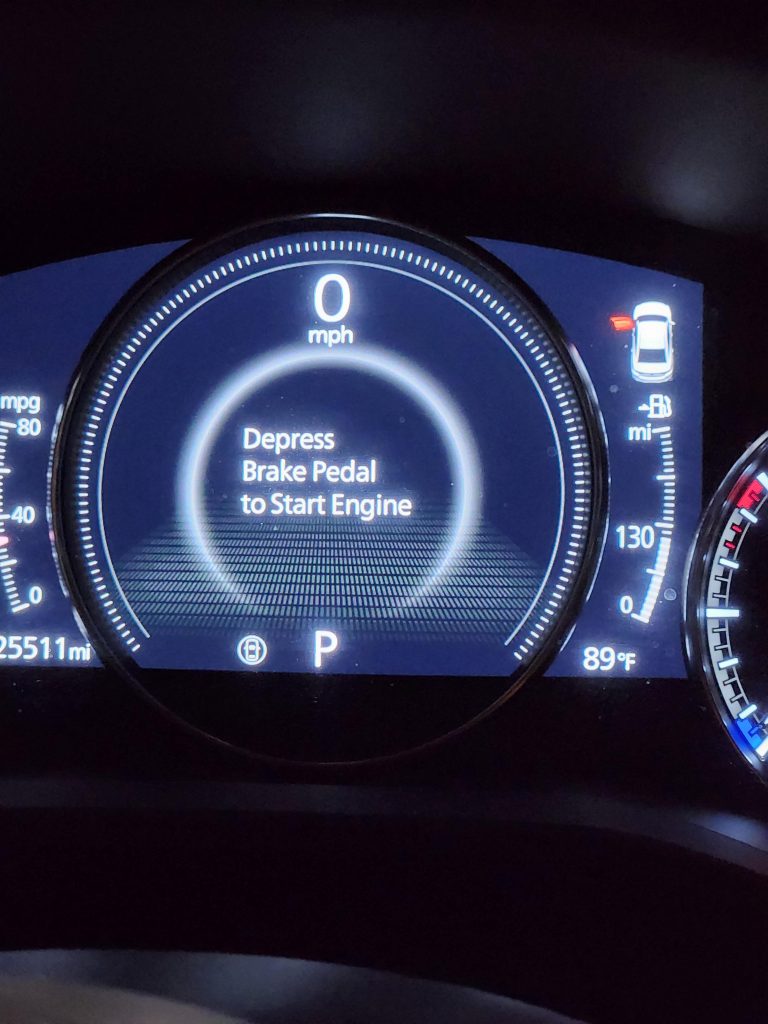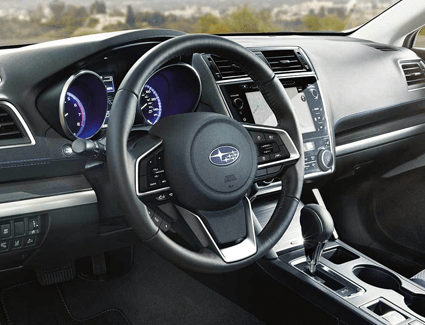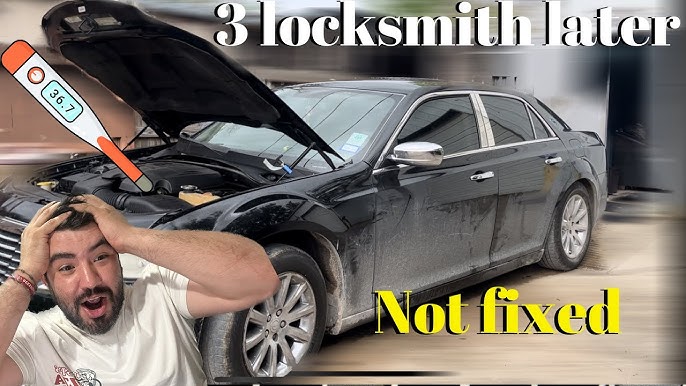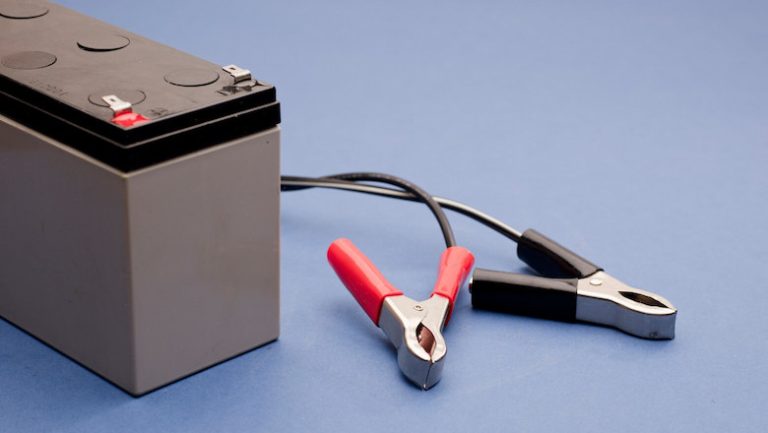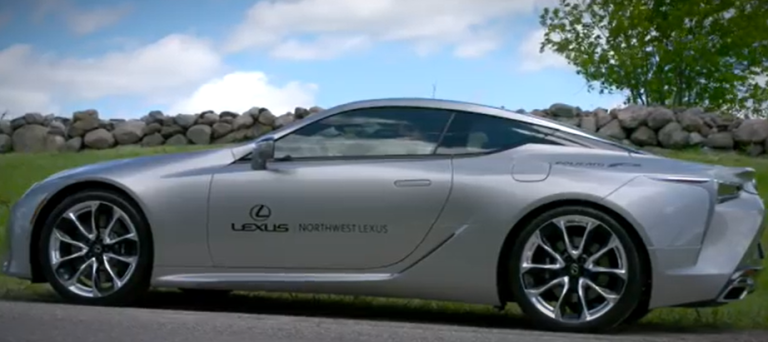Car Won’t Start But Lights Come On: Troubleshooting Tips
If your car won’t start but the lights come on, the issue is likely with the battery, starter, or ignition switch. The battery may have enough power for lights but not for starting. Check battery connections, test the starter, and inspect the ignition system for faults.
Frustrating, right? You might start to panic, but before you do, know that you’re not alone. Many drivers have been in your shoes, and there are solutions that can get you back on the road in no time. When faced with a car that won’t start but still has power to the lights, it’s easy to feel overwhelmed.
Is it something major, or just a simple fix? You don’t need to be a car expert to understand what’s going on. We’ll break down the possible reasons behind this issue in a straightforward way, helping you identify the problem and take the right steps to fix it. Keep reading, because understanding these common car issues can save you time, money, and stress.
Car Won’t Start But Lights Come On
Common Causes
Car won’t start, but lights are on? This often means a problem with the starter or battery connections. It might also be due to a faulty ignition switch or a blown fuse. Checking these components can help identify the issue.
When your car won’t start but the lights come on, it can be both perplexing and frustrating. You’ve likely experienced that sinking feeling when your car doesn’t respond as expected. Before you call for a tow, it’s helpful to understand what might be causing this issue. Let’s explore some common causes that could be at play.
A common culprit is a weak or faulty battery. Even if your lights are on, your battery might not have enough power to start the engine. Consider checking the battery terminals for corrosion. A simple cleaning might solve the problem. Remember to check your battery voltage; a multimeter can be a handy tool here.
Read more: Car Won’t Start in Cold: Essential Fixes & Tips
Ignition Switch Problems
The ignition switch is another part that often goes unnoticed. If it’s failing, you might experience symptoms like the car not starting even though the dashboard lights are on. Try jiggling the key in the ignition to see if it starts. If this works, it could indicate an issue with the ignition switch.
Starter Motor Failure
The starter motor is crucial for getting your engine running. A faulty starter could mean your car won’t start, but the lights work just fine. Listen for a clicking sound when you turn the key. If you hear it, the starter motor might be the problem. Replacing it could be your solution.
Fuel Supply Issues
Sometimes, the problem is as simple as running out of fuel. You’d be surprised how often this is overlooked. Make sure there is enough gas in the tank. If your fuel gauge is faulty, consider keeping a log of fill-ups and mileage to avoid getting caught off guard.
Security System Malfunctions
Modern cars often have complex security systems. If your car’s security system is malfunctioning, it might prevent the car from starting. Check if your car’s anti-theft system light is flashing or behaving unusually. Resetting the system might be all you need to get back on the road.
Reflect on your last experience with a non-starting car. What was the issue, and how did you solve it? Sharing these moments can help others and even save a trip to the mechanic. Understanding these common causes empowers you to handle car troubles with more confidence.

Credit: wowowow.com
Battery Issues
Car won’t start but lights come on? Your battery might be the issue. It could have enough power for lights but not for the engine. Regular checks and maintenance can prevent this problem.
When your car won’t start but the lights come on, it’s easy to feel puzzled. Often, this scenario points to battery issues, but don’t worry—you’re not alone. Many drivers encounter this problem, and understanding its nuances can save you time and stress.
Is Your Battery Fully Charged?
A car battery can still power the lights while lacking the juice to start the engine. This could mean your battery isn’t fully charged. Have you noticed your car struggling to start recently? That could have been an early warning sign.
Regularly using electrical components like the radio or lights without running the engine can drain the battery. Check if your battery needs a charge or replacement.
Check The Battery Connections
Loose or corroded battery connections can prevent your car from starting, even if the battery is otherwise fine. Have you ever fiddled with something and realized it wasn’t connected properly? Your car battery might be in the same boat.
Inspect the battery terminals for corrosion. Clean them with a mixture of baking soda and water if necessary. Ensure the connections are tight, as even a slight looseness can disrupt the power flow.
Consider The Battery’s Age
How old is your car battery? Car batteries typically last three to five years. If yours is older, it might be time for a replacement.
Older batteries lose their ability to hold a charge efficiently. If you can’t remember the last time you replaced your battery, it might be worth investing in a new one.
Look Into Temperature Effects
Temperature can significantly affect your battery’s performance. Have you noticed your car starting issues during extreme weather?
Cold weather can drain a battery’s power, while excessive heat can cause it to fail. If you live in an area with harsh temperatures, consider getting your battery checked before the weather changes drastically.
Test The Battery
If you’re unsure about your battery’s condition, a simple test can provide answers. Many auto parts stores offer free battery testing. Wouldn’t it be great to pinpoint the issue without spending a dime?
Testing will reveal if the battery is the root cause. If it is, you can then decide whether to charge or replace it.
Ask Yourself: Is The Alternator At Fault?
Sometimes, the problem isn’t the battery but the alternator. The alternator charges the battery while the engine runs. If it fails, the battery won’t charge properly.
Does your battery die frequently despite being relatively new? The alternator might be the culprit. Have it checked to ensure your battery receives the necessary charge.
Understanding these battery issues can help you troubleshoot effectively when your car refuses to start, but the lights come on. Have you faced any of these battery problems before? Share your experiences and insights below!
Starter Motor Problems
Car won’t start but lights come on? This often points to starter motor problems. The engine might not crank, signaling a need for inspection or replacement.
When your car won’t start but the lights come on, one likely culprit is the starter motor. This essential component is responsible for cranking the engine to get it running. If it’s faulty, you might find yourself stranded unexpectedly. Understanding starter motor problems can save you time and stress.
How The Starter Motor Works
The starter motor is a small electric motor that turns the engine over. It uses power from the battery to initiate this process.
When you turn the ignition key, the starter motor engages the engine’s flywheel, prompting it to start. If any part of this system fails, your engine won’t crank.
Signs Of Starter Motor Issues
You might hear a clicking sound when attempting to start your car. This often indicates a starter motor problem.
Sometimes, you’ll notice a grinding noise, which suggests the starter motor gear isn’t engaging correctly with the flywheel.
If your car starts intermittently, the starter motor may have worn out contacts or solenoid issues.
Common Causes Of Starter Motor Failure
Wear and tear is a frequent cause, especially in older cars. Starter motors can degrade due to repeated use.
Electrical issues, like faulty wiring or connections, might also prevent it from working effectively.
Heat damage can occur if the starter motor is located near hot engine components, leading to premature failure.
Practical Solutions To Starter Motor Problems
Check the battery first, as a weak battery can mimic starter issues. Ensure all connections to the starter motor are secure.
If you suspect wear, consider replacing the starter motor. It’s a straightforward job for a mechanic.
Regular maintenance and checks can prevent starter motor issues before they occur.
Reflect On Your Car’s Maintenance Routine
When was the last time you checked your starter motor? A simple inspection can avert major headaches down the line.
Could a little preventive maintenance save you from future trouble? Investing time now might spare you from inconvenient breakdowns later.
Remember, car problems are not just technical issues; they affect your day and plans. Taking proactive steps keeps you on the road and stress-free.

Credit: www.reddit.com
Ignition Switch Faults
Experiencing a car that won’t start can be frustrating. The lights are on, yet the engine remains silent. One possible culprit is the ignition switch. This key component plays a vital role in starting your vehicle. When it malfunctions, it can prevent the engine from cranking.
Ignition Switch: A Brief Overview
The ignition switch connects your car’s electrical system to the battery. It sends power to the engine’s starter motor. A fault can disrupt this process, leaving the engine inactive.
Signs Of Ignition Switch Problems
Recognizing ignition switch issues can help you diagnose the problem. One sign is the car not starting while the lights work. Another symptom is the engine stalling suddenly.
Common Causes Of Ignition Switch Faults
Wear and tear can affect the ignition switch over time. Dirt buildup can also interfere with its function. Electrical faults might lead to inconsistent performance.
Diagnosing Ignition Switch Faults
Testing the ignition switch can confirm the issue. A multimeter can measure voltage flow. Professional inspection may provide a more accurate diagnosis.
Solutions For Ignition Switch Problems
Replacing the faulty ignition switch often resolves the problem. Cleaning can restore its function if dirt is the cause. Regular maintenance may prevent future issues.
Electrical System Checks
Car won’t start, but lights illuminate? Check the electrical system. Battery might be weak or connections loose. Ignition switch issues could be another culprit. Ensure the starter motor functions properly.
When your car refuses to start but the lights work just fine, it can be quite perplexing. Often, the issue lies within the vehicle’s electrical system. Checking the electrical system is a crucial step in diagnosing why your car won’t start. This can save you time and money, ensuring you address the right problem. Let’s dive into the key areas you should inspect to get your car back on the road.
Check The Battery
The first stop should be your car’s battery. Even if your lights are on, the battery might not have enough power to start the engine.
Check the battery terminals for any corrosion or loose connections. A simple cleaning or tightening might do the trick.
If you have a multimeter, use it to measure the voltage. A healthy battery should read around 12.6 volts. Anything significantly lower could indicate a weak battery.
Examine The Starter
The starter is another component worth checking. If it’s faulty, your engine won’t crank, even if the battery is in good shape.
Listen for a clicking sound when you turn the key. This often signals a problem with the starter or its wiring.
Consider tapping the starter gently with a hammer. Sometimes, this can temporarily fix the issue, enough to get the car started.
Inspect The Alternator
The alternator charges the battery while the engine runs. If it’s not functioning correctly, the battery might not hold a charge.
Look for dashboard warning lights indicating an alternator issue. A dim or flickering light can point to a problem.
Test the alternator with a multimeter. The voltage should read between 13.8 to 14.4 volts with the engine running.
Check The Fuses
A blown fuse can disrupt the electrical flow necessary for starting the car. Inspect the fuse box to rule this out.
Identify the fuses related to the starting system. Most cars have a diagram to help you locate these.
Replace any blown fuses with ones of the same amperage. This is a quick fix that could save you from unnecessary repairs.
Investigate Wiring And Connections
Wiring and connections are often overlooked but can be common culprits. Ensure all cables and wires are intact and securely connected.
Look for signs of wear, fraying, or damage. Even a small issue can prevent your car from starting.
Consider whether recent repairs or modifications might have affected the wiring. A quick review can often reveal the source of the problem.
Are you ready to get your hands dirty and investigate these areas? Remember, understanding your car’s electrical system can save you time and unnecessary expenses. Plus, it gives you peace of mind knowing that your car is in top shape.

Credit: www.youtube.com
Read more: Car Won’t Start After Getting Gas: Troubleshooting Tips
Frequently Asked Questions
Why Wont My Car Start But The Lights Go On?
Your car may not start due to a weak battery or faulty starter, even if the lights work. Check connections and battery health. If issues persist, consult a mechanic for professional help.
Can A Car Battery Be Dead And The Lights Still Work?
Yes, a car battery can be dead while the lights still work. Lights require less power than starting the engine. A weak battery might power lights but fail to start the car. Check the battery health and alternator if the car won’t start but lights are functional.
Why Won’t My Car Start But Has Power?
Your car might have power but not start due to a faulty starter, bad ignition switch, or fuel system issues. A weak battery, corroded connections, or a bad alternator can also cause this problem. Checking these components can help identify the issue.
Why Do My Car Lights Turn On But No Ignition?
Your car lights working but no ignition indicates a battery issue, faulty starter, or ignition switch problem. Check connections for loose wires. Ensure the battery is charged. Inspect the starter motor and ignition switch for potential faults. Consult a mechanic for accurate diagnosis and repair.
Why Does My Car Not Start But Lights Work?
This often means the battery has power. But the starter might be bad.
Conclusion
Car Won’t Start But Lights Come On, but no start. Common issue. Check the battery first. Connections might be loose or corroded. Consider the starter and ignition switch. They often cause problems. Fuel issues can also be a factor.
Listen for unusual sounds. Seek professional help if unsure. Regular maintenance prevents future issues. Keep your car in top shape. Safety always comes first. Understanding these basics saves time and stress. Stay prepared. Drive safely and confidently.

